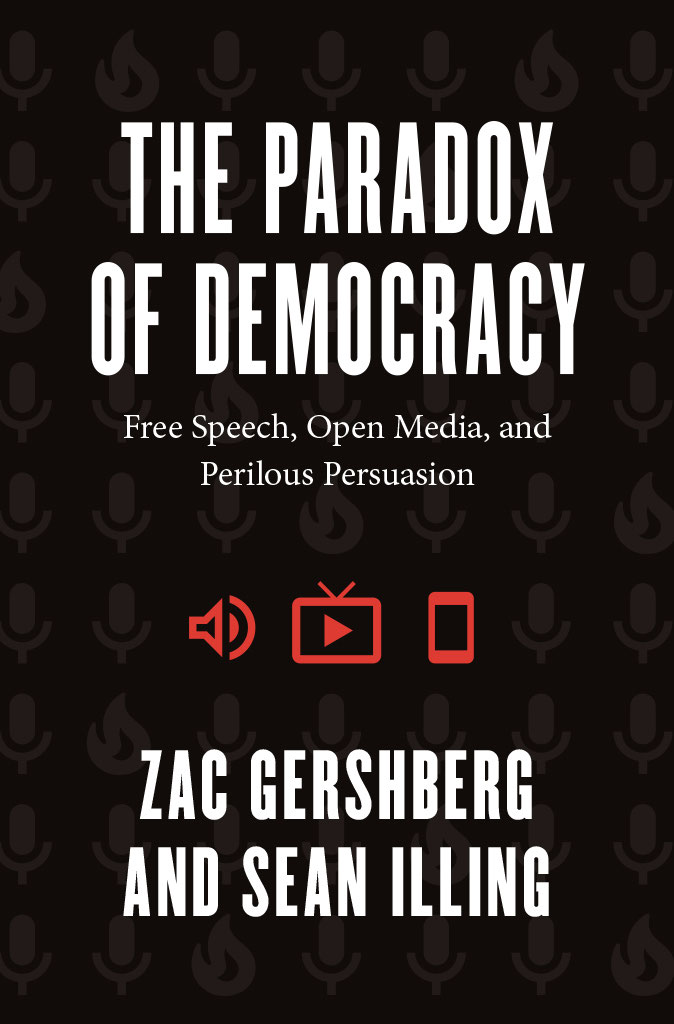
The Paradox of Democracy
The Paradox of Democracy
Free Speech, Open Media, and Perilous Persuasion
Zac Gershberg and Sean Illing
The University of Chicago Press CHICAGO AND LONDON
The University of Chicago Press, Chicago 60637
The University of Chicago Press, Ltd., London
2022 by Zac Gershberg and Sean Illing
All rights reserved. No part of this book may be used or reproduced in any manner whatsoever without written permission, except in the case of brief quotations in critical articles and reviews. For more information, contact the University of Chicago Press, 1427 E. 60th St., Chicago, IL 60637.
Published 2022
Printed in the United States of America
30 29 28 27 26 25 24 23 22 21 1 2 3 4 5
ISBN-13: 978-0-226-68170-2 (cloth)
ISBN-13: 978-0-226-81890-0 (e-book)
DOI: https://doi.org/10.7208/chicago/9780226818900.001.0001
Library of Congress Cataloging-in-Publication Data
Names: Gershberg, Zachary, 1980 author. | Illing, Sean D., author.
Title: The paradox of democracy : free speech, open media, and perilous persuasion / Zac Gershberg and Sean Illing.
Description: Chicago : University of Chicago Press, 2022. | Includes bibliographical references and index.
Identifiers: LCCN 2021047957 | ISBN 9780226681702 (cloth) | ISBN 9780226818900 (ebook)
Subjects: LCSH: Mass media and public opinion. | DemocracyPhilosophy. | JournalismPolitical aspects.
Classification: LCC P95.8 .G47 2022 | DDC 302.23dc23/eng/20211110
LC record available at https://lccn.loc.gov/2021047957
 This paper meets the requirements of ANSI/NISO Z39.48-1992 (Permanence of Paper).
This paper meets the requirements of ANSI/NISO Z39.48-1992 (Permanence of Paper).
To Karen & Lauren, without whom not
It is to be regretted the world does not discriminate more justly in its use of political terms.
James Fenimore Cooper, The Bravo (1831)
Contents
This book makes an unconventional claim about democracy. In almost every major work on the subject, democracy is reduced to a body of institutions and practices. We are told, time and again, that the touchstone of any democratic society is the universal right to vote and a government that enshrines the law. This description isnt wrong so much as narrow; it identifies the core features of democracy, but it doesnt capture the constitutive condition of this type of society. Moreover, its better to think of democracy less as a government type and more as an open communicative culture. Democracies can be liberal or illiberal, populist or consensus based, but those are potential outcomes that emerge from this open culture. And the direction any democracy takes largely depends on its tools of communication and the passions they promote. This is more than an academic distinction. To see democracy as a culture of free expression is to foreground its susceptibility to endless evolution, even danger.
We call this the paradox of democracy: a free and open communication environment that, because of its openness, invites exploitation and subversion from within. This tension sits at the core of every democracy, and it cant be resolved or circumnavigated. To put it another way, the essential democratic freedomthe freedom of expressionis both ingrained in and potentially harmful to democracy. We state this at the outset because it helps frame everything that follows. More than a regime or a governing philosophy, democracy is both a burden and a challenge. Like the Greek mythological hero Sisyphus, who was condemned by the gods to roll a rock up a hill for all eternity, democracy is an unwieldy boulder continually throwing us back into an absurd situation. No matter what we do or how hard we push, the boulder persists. Democracy is dangerous for precisely this reason, which presents not just a collective-action problem but a genuine existential dilemma: it demands that we take responsibility for the situation in which we find ourselves. Democracy has no defined purpose, and it is shaped in real time by the communicative choices of individual citizens and politicians. But it offers no guarantees of good governance or just outcomes.
The belief that democracy is a fixed system with inherent features has led to a lot of confusion. Most people still hold whats often called the folk theory of democracy: ordinary citizens have preferences about what the government ought to do; they elect leaders who will carry out those preferences and vote against those who will not. In the end, were left with a government that more or less serves the majority. And all this is supposed to take place in a culture of rules and norms that privileges minority rights, respects the rule of law, and welcomes peaceful transitions of power. But that culture is precisely what we call liberalismits not democracy as such. Confusion on this point has obscured the nature and demands of democratic life.
So this book is largely our attempt to see democracy with clear and unforgiving eyes. It is descriptive. We linger on democracys weaknesses and contradictions while insisting it remains the best form of politics because it affords freedom of expression and the possibility of confronting power in all its formsthats democracys claim to superiority over all other political cultures. Citizens no less than politicians have a voice through what they say and publish, how they assemble and mobilize, and how they vote. But democratic freedom can be self-negating because persuasion is the operative variable. Governments, even democratic governments, can elect to constrain the voice of the people and limit who gets to count as a citizen. New media open up new rhetorical styles in political discourse, and bad politics ensue.
The ancient Greeks understood this long before us, and they even developed two frameworks for free speech that highlighted the problem. Isegoria described the right of citizens to equal participation in public discourse; parrhesia described the right of individuals to say anything they wanted, whenever they wanted, and to whomever they wanted. As chapter 2 explains, isegoria created the political environment of democracy, while parrhesia actualized it. But the right to say anything opened the door to all manners of subversion, which has been a challenge to every democracy ever since. The emergence of isegoria in Athens, for instance, was accompanied by the joint rituals of ostracism and tribalism. In todays language, you might say that Socrates was the first democratic citizen to be canceled by the same democratic forces that made his speech free in the first place. This is the defining tension of any democratic society, and citizens and politicians alike are forced to navigate it. Just as Sisyphus makes that rock meaningful by owning it, so we propel democracy by freely communicating with others. But the paradox were going to outline makes this task enormously difficult. Our communicative environment, which lays the foundation for shared meaning, is unruly and continually upended by media innovation and treacherous politics that send the boulder of democracy rolling back down the hill.
Citizens, philosophers, and politicians have always fretted about democracy for exactly this reason. Although it facilitates a culture in which deliberative discourse and collective judgment are possible, it can also be gamed, prompting crises from within. The panic today over democracy is no different. Since 2016, a whole genre of literature has emerged in books and essays seeking to explain how democracies fall or why Western liberalism is in retreat. The consensus is that if democracy isnt quite dead, its certainly under attack. We are surely living through a period of intense democratic disruption. All over the world, from India to Hungary to Turkey to Brazil to the United States, democratic cultures have been disordered. What were witnessing is a convergence of various forces unleashed by novel media and populist rhetorical styles that implode democracy from within.
Next page
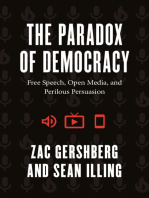
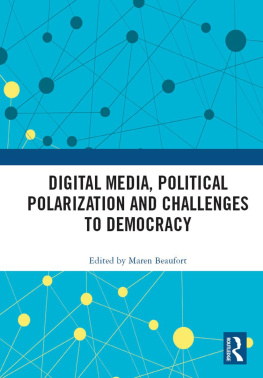

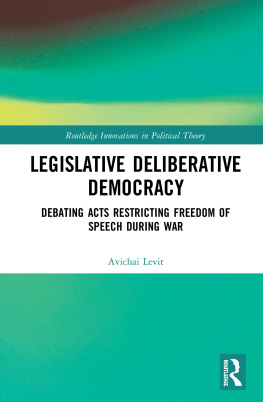
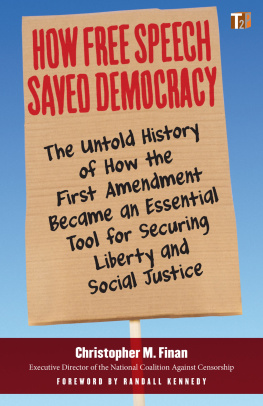

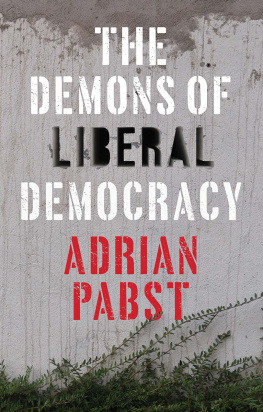
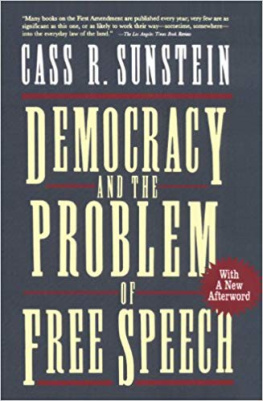

 This paper meets the requirements of ANSI/NISO Z39.48-1992 (Permanence of Paper).
This paper meets the requirements of ANSI/NISO Z39.48-1992 (Permanence of Paper).